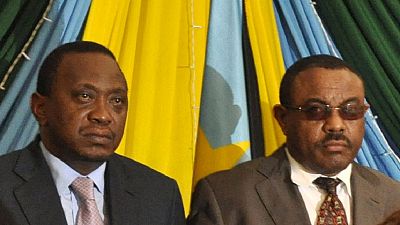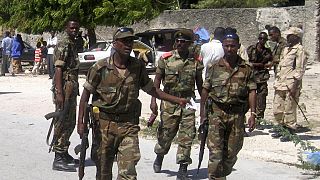Ethiopia
International rights group, Human Rights Watch (HRW) says as a matter of urgency, the Kenyan government must speak on the political and security ongoings in neighbouring Ethiopia.
According to HRW, Kenya especially and the entire East Africa region needed to encourage Ethiopia to undertake needed reforms and to halt its continued descent into chaos.
A March 24, 2018 statement ‘Why is Kenya’s Government Silent on Ethiopia Crackdown’ released by the group’s Senior Researcher for the Horn of Africa, Felix Horne read in part: “… Kenyan leaders should publicly voice their concern over the increased military aggression that causes Ethiopians to flee into Kenya. Kenya, and East Africa more broadly, need a stable and prosperous Ethiopia.
“Adding the voice of a trusted ally like Kenya to the many tens of millions of Ethiopians demanding change will be an important contribution toward stability in the region.”
Ethiopia crisis is ‘the beginning of the end of autocracy’ – Kenyan security expert
HRW also stressed that on the humanitarian scale, Kenya stands to suffer if the situation in Ethiopia degenerates any further. With family ties connecting people on both sides of their common border, Ethiopians are likely to continue fleeing into Kenya.
“Over eight million Ethiopians are in need of food aid. Many of them live in southern Ethiopia, close to the Kenyan border. If conflict in Ethiopia increases, many of its most vulnerable citizens will be looking for safety.
“Kinship connections, established trafficking routes, and relatively stable security all make Kenya an attractive destination,” the statement added.
Over the last weeks, thousands of Ethiopians living in the border town of Moyale fled their homes into Kenya’s Marsabit County after a failed military operation by the army led to the deaths of nine people and injuries to others.
Confirming the incident, the Minister of Defense, admitted that the army had acted on failed intelligence as it sought to intercept members of a banned group – the Oromo Liberation Front (OLF) – who were reportedly trying to enter the country.
HRW also reiterated how Ethiopian forces have in the past entered Kenya and perpetuated rights abuses in the name of counter-terrorism operations. They also accused the Kenyan authorities in part of complicity in helping Ethiopia arrest Ethiopians who had fled in Kenya.
“Ethiopia’s intolerance of dissent has also been exported across the border in the past. For years, Ethiopian intelligence officials, sometimes in cooperation with Kenyan police, have harassed, threatened, and on occasion kidnapped Ethiopian asylum seekers in Nairobi and elsewhere in Kenya,” the statement added.
The country is currently under martial law, after a state of emergency was declared in February 16 – a day after the resignation of Prime Minister Hailemariam Desalegn. The ruling coalition is meeting to elect his successor.














02:12
DRC: PM in war-torn eastern provinces to assess unpopular state of siege measure
01:16
Kenya investigates alleged abduction in Nairobi of Uganda opposition figure
01:36
Kizza Besigye faces Military Court as Uganda-Kenya jurisdiction row deepens
00:58
Somaliland opposition leader wins presidential poll
02:34
Initiative in Nairobi's Mukuru slums uses fly lavae to tackle food waste
01:04
Putin congratulates Trump, signals openness to dialogue over U.S.-Russia relations